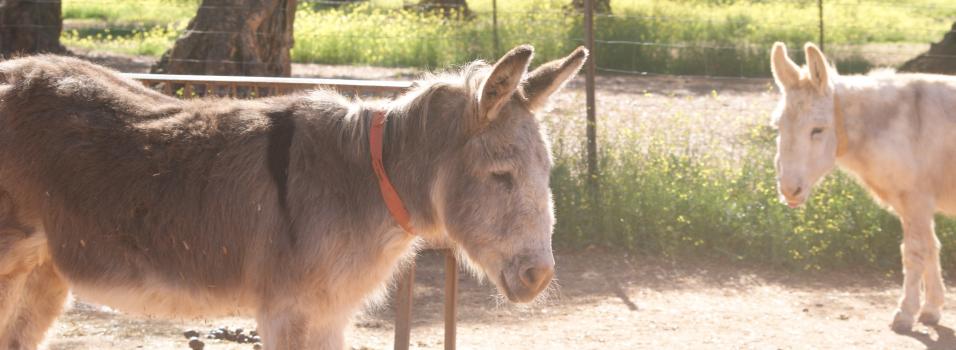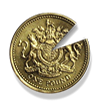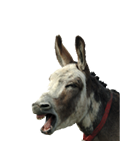Caring for the Geriatric Donkey: Promoting Health and Well-being in Old Age
Donkeys are sturdy and resilient animals, but like any living beings, they age over time. While it is often said that a donkey's life expectancy is around 40 years, the reality is that many of them begin to show signs of aging as early as 20 years, and the average life expectancy is below 30 years. Therefore, it is crucial to pay special attention to the care of geriatric donkeys, those that have surpassed the 20-year mark, to ensure that they enjoy a full and healthy life in their later years. Here are some key considerations to ensure the well-being of your senior donkey.
-
Monthly weight and physical condition monitoring: Monthly recording of your donkey's weight, contour, and physical condition is essential. This will allow you to detect any gradual changes in weight, which can be indicative of health issues.
-
Personalized feeding: The diet of a geriatric donkey should be tailored to their weight and physical condition. It is crucial to pay attention to dental problems, as over time, their teeth may wear down, making it difficult to chew food. Offering small and frequent fiber-rich meals is critical in these cases.
-
Regular dental care: Regular dental check-ups, ideally every six months or as recommended by the veterinarian, are essential. Dental wear is common in older donkeys and can affect their ability to feed properly.
-
Vaccination and parasite prevention: Keeping vaccinations up to date, especially for tetanus, is important to ensure your donkey's overall health. Additionally, older donkeys require ongoing treatment for internal parasites.
-
Hoof care: Over time, donkey hooves can become more vulnerable. Maintaining a clean, dry, and stone-free environment can minimize problems, especially in winter. It is important to be careful when cleaning hooves, as limbs and joints can become stiff.
-
Protection against the elements: As older donkeys age and lose weight, it is essential to provide them with blankets and adequate protection against the elements. It is important to check the blankets daily to ensure they are in good condition and that the donkey remains warm.
-
Exercise management: Geriatric donkeys may experience issues such as arthritis and difficulties with slopes. Therefore, it is advisable for them to share a flat pasture with other donkeys of a similar age. Additionally, regular exercise, such as hand-led walks, will help keep the older donkey's limbs active.
-
Adjustments in feeding and water: Older donkeys with arthritis in the neck, spine, or joints can benefit from adjustments in the height of their food and water. Experimenting with different heights can make their lives more comfortable.
-
Daily grooming and affection: Older donkeys enjoy attention and affection. Their coats are often denser, so daily grooming may be necessary to keep them clean and comfortable.
In summary, the care of geriatric donkeys is essential to ensure that these beloved animals enjoy a healthy and happy old age. Through a proactive approach to health, nutrition, exercise, and personal attention, we can provide older donkeys with the quality of life they deserve in their later years.




